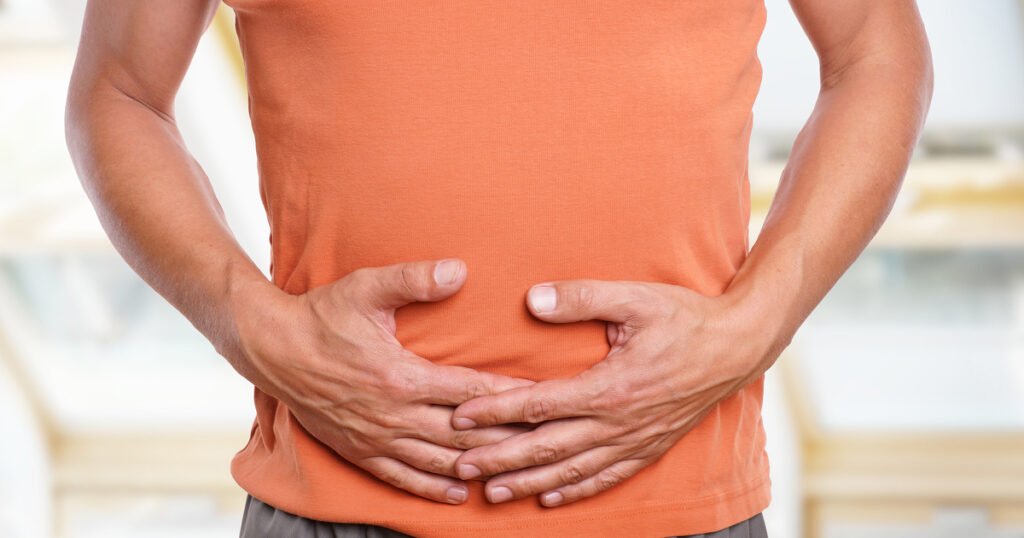You are experiencing bloating and discomfort because your body has accumulated too many carbs, which results in carbohydrate intolerance. My doctor diagnosed me after assessing my complaints, and I felt helpless and completely baffled.

Indeed, recently I have been feeling incredibly uncomfortable and uneasy. The gas was so excruciatingly bad that my stomach kept bulging out.
Is it from last week’s gathering, where I ate a variety of pastries and confections? I even had a variety of rice and pasta meals.
I attempted to actively reply to my doctor’s queries but I was so deep in quiet reflection. How do I get rid of all of these? I simply want to resume feeling better.
What causes a bloated stomach
A bloated stomach begins with a sensation of tightness, pressure, or fullness in your stomach. A noticeably swollen tummy may or may not accompany it.
The sensational feeling might range from slightly unpleasant to very painful. It normally goes away after a time, but it might be a persistent issue for some people. Cycles of bloating can be caused by digestive disorders and hormonal swings. If your bloated stomach persists, you should seek medical attention to establish the cause.
Excess intestinal gas is the most common reason for stomach discomfort and bloating. If you have a bloated stomach after eating, it might be due to a digestive problem.
It might be as easy as eating too much too quickly, or it could be due to food intolerance or another ailment that causes gas and stomach contents to accumulate. Another typical reason for temporary bloating is your menstrual cycle. A bloated stomach might sometimes suggest a more serious medical issue.
1. Excess Gas in the Stomach
Gas is a direct byproduct of digestion, but too much intestinal gas indicates that something is wrong with your digestion.
The majority of gasses in your intestines are created by gut bacteria digesting carbohydrates, a process known as fermentation.
If there is excessive fermentation, it is because too many carbs were not naturally digested earlier in the digestive process, prior to reaching those gut bacteria.
This might be for a variety of reasons. Perhaps you just ate too much too quickly for adequate digestion.
- eating or drinking too fast
- chewing gum
- smoking
- wearing loose dentures
Burping and flatulence are two ways swallowed air leaves the body. Delayed emptying of the stomach (slow gas transport) in addition to gas accumulation can also cause bloating and abdominal distension.
Farting and flatulence are two methods by which ingested air exits the body. Bloating and abdominal distension can be caused by delayed stomach emptying (slow gas transit) as well as gas buildup.
2. Medical causes
Other causes of bloating may be due to medical conditions. These include:
- irritable bowel syndrome (IBS)
- inflammatory bowel disease, such as ulcerative colitis or Crohn’s disease
- other functional gastrointestinal disorders (FGIDs)
- heartburn
- food intolerance
- weight gain
- hormonal flux (especially for women)
- intestinal parasite infection
- eating disorders such as anorexia nervosa or bulimia nervosa
- mental health factors such as stress, anxiety, depression, and more
- some medications
You might also have a dietary intolerance or gastrointestinal (GI) disorder. Among the probable causes are:
3. Malabsorption of carbohydrates.
Many people have trouble digesting a certain amount of carbohydrates (sugars). Lactose, fructose, and carbohydrates found in wheat and legumes are all major reasons. You may have an intolerance, or you may simply have general issues that lead your body to struggle with more challenging carbohydrates. A nutritionist or GI expert can assist you in identifying your food sensitivities.
4. Bacterial overgrowth in the small intestine (SIBO).
The small intestine becomes infected when intestinal bacteria from the colon overflow there. These bacteria can get so numerous that they outnumber the bacteria that are supposed to balance them. Some bacteria actually take up the gases released by others, but if there are too many of one type and not enough of another, the balance can get wrong.
5. Digestive system dysfunctions.
When your body suffers more from digestion for inexplicable reasons, IBS and functional dyspepsia may be identified. After eating, symptoms can include gas and bloating. Be alert for the typical warning signs, such as nausea, vomiting, anemia, bleeding, diarrhea or constipation, fever, and accidental weight loss.
What prevents the stomach from bloating?

- Long-term alleviation will depend on what causes your distress in the first place. To figure things out, a specialist diagnostic could be required. However, there are a few things you may do if you’re seeking for home remedies to relieve your bloated stomach right now or prevent it from happening again tomorrow.
- Teas made from herbs, such as peppermint, chamomile, ginger, turmeric, and fennel, can help with digestion and the elimination of gas. Dandelion tea can assist in reducing fluid retention.
- Capsules containing peppermint oil work as a therapeutic antispasmodic. They, therefore, aid in the relaxation of your gut muscles. This can assist you in releasing gas and stool that has been retained, especially if your difficulties are related to your motility.
- It has been demonstrated that antacids can reduce digestive tract irritation and facilitate simpler gastric emptying. Simethicone, an active component of several antacids, helps pass gas by clumping together tiny gas bubbles. Simethicone can be purchased individually as well.
- Magnesium supplements help to calm the stomach muscles and counteract stomach acid. Magnesium’s natural laxative qualities can occasionally be helpful, but if used excessively, they can develop into habits.
- Your gut bacteria can be augmented or rebalanced with the use of probiotics. Some will initially aid in improved meal digestion, while others might aid in the absorption of more gas. To see an improvement, you might need to take them consistently for a few days or weeks.
- Psyllium husks are a well-known fibrous remedy that might encourage more frequent bowel movements. Always add fiber supplements gradually and drink a lot of water when doing so. As needed, over-the-counter laxatives can also be used.
- Abdominal bloating may be fought with aerobic workouts that emphasize core body strengthening.
How can stomach bloating be avoided?
Making certain lifestyle modifications might help avoid stomach bloating if it is brought on by a poor diet or drinking too much alcohol. Following are a few excellent general principles:
1. Consume enough fiber.
Start introducing fiber into your diet gradually if you don’t generally consume a lot of it to avoid overtaxing your body. At first, fiber will make you gassier, but as it moves down your digestive tract, it will start to help clear out the fermenting feces that have been lodged there. In order to prevent overeating, fiber also signals your body to drink more water. It also has the effect of making you feel full faster. As a prebiotic, fiber also aids in nourishing and promoting the healthy bacteria in your gut.
2. Consume sufficient water.
This will promote motility throughout your whole digestive system and prevent the food that is now being digested from getting too compacted and hard to move through. Additionally, water makes you feel full between meals.
3. Do some workouts.
Exercise helps keep your bowels flowing and reduces water retention. Additionally, it can aid in preventing the quick weight gain that frequently results in a bulging belly. Regular exercise may seem more difficult if you work at a desk, but it doesn’t need much effort; just keep in mind to sometimes get up and move around.
4. Avert eating manufactured/processed food.
Processed foods are heavy in salt and fat and poor in fiber. Salt makes you retain water, while fat slows down your digestion since it takes longer to break down. Constipation and bloating can be caused by any one of these things. In addition, to being lacking in nutrients, processed meals make you feel hungry even after you have eaten a lot of calories. This makes people eat more, which eventually makes the situation worse.
5. Eat mindfully.
When you are chewing, take your time, and ensure that you are completely satisfied before you quit. Due to the time it takes for food to get from your mouth to your stomach, feeling full occurs later than usual. Generally speaking, people eat until they are physically satisfied.
6. Observe your sensitivity.
You may identify the elements you are most sensitive to by just paying attention, whether it be to certain meals or alcohol. To record how various meals affect their feelings, some people keep a food journal and write notes. Whether you want to see if your symptoms change, you may also try removing certain foods one at a time.
When to call the doctor
See your healthcare provider if your bloated stomach:
- Gets progressively worse.
- Is persistently painful.
- This persists for more than a week.
- Comes with symptoms of illness, such as fever, vomiting, or bleeding.
References:
“Research and study“. The National Library of Medicine. PubMed Central
“Bloating“. Cleveland Clinic News & More
“Images” the web






